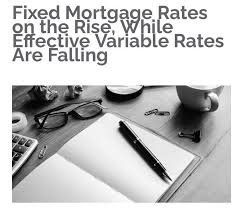
You should understand how a home equity line-of-credit works if you are considering borrowing it. This type of revolving credit is secured by your house and has a fixed repayment period and an interest rate. You must own your house and have equity. This means that the amount you owe on the home must be less than its market value. To determine if you're a good candidate, your lender will also look at your credit score and debt to income ratio.
Revolving credit secured with your home
A home equity line of credit, or HELOC, is a revolving line of credit from a lender that enables you to borrow against the equity in your home. This type of credit can be used for large-scale debt consolidation or to pay off high-interest bills. You can also deduct the interest from these loans.
You must be the owner of your home and have equity in your home to be eligible for a home equity loan. The market value of your home must equal the amount you owe. Lenders will also consider your debt-to-income ratio, credit score, and history of paying your bills on time.

A home equity credit line can be used to help pay for major expenses, such as home repairs, medical bills, and education. The line of credit may be able to help you pay your monthly expenses. However, it is important that you understand the risks. For the rare occasion that you need to borrow more than you can repay, be sure to have an emergency plan.
Repayment period
A home equity loan of credit has a repayment period that depends on the amount of the loan as well as the equity in the house. While the maximum amount of the loan will be the same for all borrowers it will also vary depending on how large the loan amount is and how high the equity in your home. Quick calculations can help you calculate the repayment time for a HELOC.
A home equity loan of credit can be repaid in two stages. The first is called the draw, and it usually lasts from 10 to 15 years. During this period of time, you will pay interest and principal on your line of credit. The second phase is the repayment period, which begins once the draw period ends.
Lenders will vary in the length of the home equity line credit's repayment period. For example, a HELOC may allow you to make interest-only payments during the draw period, and a home equity payment plan may allow you to make principal-and-interest payments after the draw period. This will reduce your monthly payments.

Interest rate
The interest rate on a home equity line of credit can vary widely. The margin is based on various factors, including the loan to value ratio, credit qualification, and property state. The interest rates are usually lower at the beginning of a loan, but they can rise over time to higher rates.
The maximum amount you can borrow for a home equity line credit is dependent on your home's current value, the proportion of your home equity that you owe, and your income. A simple calculation will give you an idea about how much you can borrow. You could borrow as much as $20,000. If you owe half of the home's worth, for example.
A five-year home equity credit interest rate is competitive with other rates. However, a five year repayment term means that the rate will be lower but that you will need to make higher monthly payments. Your credit score will determine the rate. The lowest rates are usually available for qualified borrowers who have a loan-to value ratio of at least 80%. Credit scores of 740 and higher are required in order to qualify.
FAQ
How long does it take to sell my home?
It depends on many factors including the condition and number of homes similar to yours that are currently for sale, the overall demand in your local area for homes, the housing market conditions, the local housing market, and others. It may take 7 days to 90 or more depending on these factors.
What are the benefits to a fixed-rate mortgage
With a fixed-rate mortgage, you lock in the interest rate for the life of the loan. This means that you won't have to worry about rising rates. Fixed-rate loan payments have lower interest rates because they are fixed for a certain term.
What are the chances of me getting a second mortgage.
Yes. But it's wise to talk to a professional before making a decision about whether or not you want one. A second mortgage can be used to consolidate debts or for home improvements.
What is a reverse loan?
Reverse mortgages allow you to borrow money without having to place any equity in your property. It allows you access to your home equity and allow you to live there while drawing down money. There are two types: conventional and government-insured (FHA). You must repay the amount borrowed and pay an origination fee for a conventional reverse loan. FHA insurance will cover the repayment.
What is the average time it takes to get a mortgage approval?
It depends on several factors such as credit score, income level, type of loan, etc. It typically takes 30 days for a mortgage to be approved.
Statistics
- Over the past year, mortgage rates have hovered between 3.9 and 4.5 percent—a less significant increase. (fortunebuilders.com)
- Some experts hypothesize that rates will hit five percent by the second half of 2018, but there has been no official confirmation one way or the other. (fortunebuilders.com)
- Based on your credit scores and other financial details, your lender offers you a 3.5% interest rate on loan. (investopedia.com)
- It's possible to get approved for an FHA loan with a credit score as low as 580 and a down payment of 3.5% or a credit score as low as 500 and a 10% down payment.5 Specialty mortgage loans are loans that don't fit into the conventional or FHA loan categories. (investopedia.com)
- The FHA sets its desirable debt-to-income ratio at 43%. (fortunebuilders.com)
External Links
How To
How to become a broker of real estate
Attending an introductory course is the first step to becoming a real-estate agent.
The next thing you need to do is pass a qualifying exam that tests your knowledge of the subject matter. This means that you will need to study at least 2 hours per week for 3 months.
This is the last step before you can take your final exam. To be a licensed real estate agent, you must achieve a minimum score of 80%.
All these exams must be passed before you can become a licensed real estate agent.